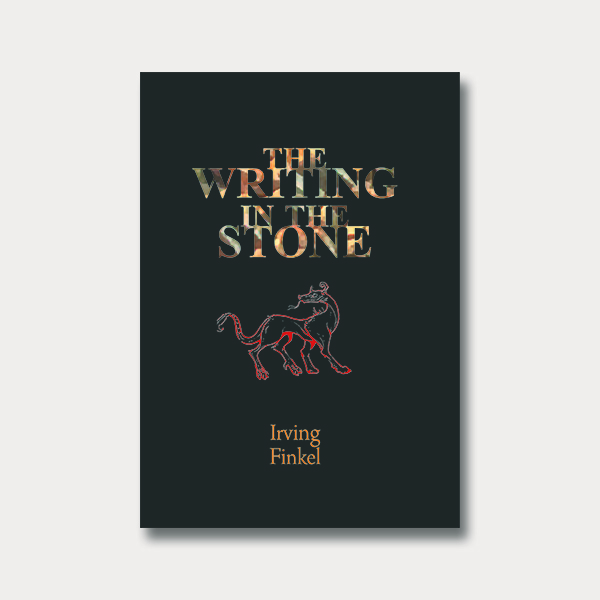
The Writing in the Stone
JANE WALDRON
Irving Finkel
2017, Medina Publishing, 978-1-91148-720-3, £20 hb., £11.99 pb.
As assistant keeper of ancient Mesopotamian script, languages and cultures in the British Museum’s Near East Department, Irving Finkel is skilled at deciphering ancient cuneiform. He is also good at weaving stories around it. In his latest piece of fiction, he gives us a macabre tale centered on the lead interpreter of inscriptions in a court in Nineveh that closely resembles that of a real Assyrian king, Ashurbanipal (668–627 BCE). The story begins when the interpreter (called the First Exorcist) receives an inscribed stone he cannot read, and in a bid to gain understanding, sets out on a trail of murder and mayhem. Obscure incantations raise the dead, a golden needle leads to agony and certain death. No one is safe. This erudite but easy-to read book introduces us to a world where demons and dragons lurk around every corner, animated by a character who, the reader is bound to hope, never really existed.
You may also be interested in...

Work Reveals Common Ground Across Massive Desert
The Sahara wasn’t always a desert. Around 9000 BCE it was a bucolic expanse where animals and lush vegetation thrived.
Children’s Book Documents Rise of Umm Kulthum, Egypt’s Star of the East, As Declaration of National Identity
Illustrator Rhonda Roumani presents an illustrative biography of legendary Egyptian singer and cultural icon Umm Kulthum.
Untold Stories of British Muslim Women as Agents of Change
Sociologist Sariya Cheruvallil-Contractor and historian Jamie Gilham present 100 years of Muslim women who have contributed to the dynamism of Islam in Britain.